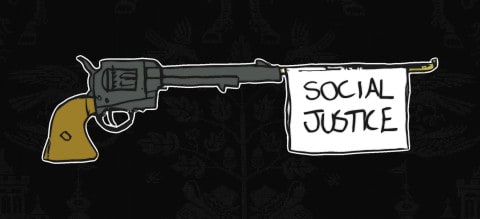SPENCER WARRINER
While there may be issues with the state of left-wing thinking in popular discourse, declaring that free speech is dying contributes remarkably little to constructive debate and intellectual progress.
In the last six months, I have been confronted with an unusual number of articles and Internet commentators addressing a common theme. There is a growing backlash against the social justice movement and the perceived rise of “outrage culture.”
Some say call-outs and trigger warnings have gone too far and that we need to pull back from coddling the oversensitive. Even worse, accusations of racism and sexism are supposedly being used to prevent any dissenting opinion from being taken seriously. Some even claim that universities have been corrupted, leaving students unchallenged in their beliefs.
I’ve noted a few flaws in this position. The first is a lack of evidence, or at least data. In my — purely anecdotal — experience, I don’t think I’ve ever seen a professor even give a trigger warning, let alone be pressured into making curriculum adjustments.
making curriculum adjustments.
Publications like The Atlantic occasionally share horror stories of trigger warnings taken to extremes, but these can cherry pick the worst examples from anywhere they occur. Apart from that example, there’s not a ton of evidence suggesting liberal tyranny is a widespread, everyday occurrence.
Second, I have an explanation as to why people make accusations of racism and sexism and it doesn’t require a left-wing conspiracy to shut down public discourse. How about the fact that racism and sexism still happen and need to be called out?
Donald Trump is the leading Republican presidential candidate in the United States and his list of transgressions is too long and depressing to be mentioned. If you’re accused of saying something racist or sexist, at least consider that you may have misspoken, even if you didn’t mean to. Unfortunately, good intentions do not release us from our ability to cause harm with our words. Trust me.
Third, universities are absolutely environments where we hope to help people expand their perspectives and learn new ways to understand the world. However, if someone tells you that your words are distressing them, you don’t get to tell them it’s justified because it expands their perspective.
This is the equivalent of punching someone in the face and claiming the person will now be more on guard against being punched. Simple politeness suggests you should make an honest effort to accommodate them unless the subject matter in question is truly essential.
After all that, allow me to briefly make a few points on the state of social justice and outrage culture. Indisputably, social justice can be used to justify attacks on ideological enemies.
Many academics, conferences and universities in Canada and elsewhere have received pressure to cancel talks by conservative speakers, sometimes even through hate mail or threats. This is despicable and perpetrated by the worst examples of leftist ideology. As such, it is a problem for the social justice movement to confront internally.
Additionally, privilege and oppression are sometimes used to shut down and tone-police individuals trying to contribute to discussion in good faith — even individuals with their own struggles to bear.
There’s a definite irony that the trend towards academic and complex language in social justice discourse makes it harder for oppressed people with lower access to education to participate.
For every shouting match on the Internet, there are a dozen people having productive, civil conversations about the big issues. For every professor being bullied into watering down their teaching, there are a hundred doing their best to promote a safe and healthy learning environment. Debate is not dead and I believe most people still want to participate in it.
—
Image: Jeremy Britz / Graphics Editor
Leave a Reply